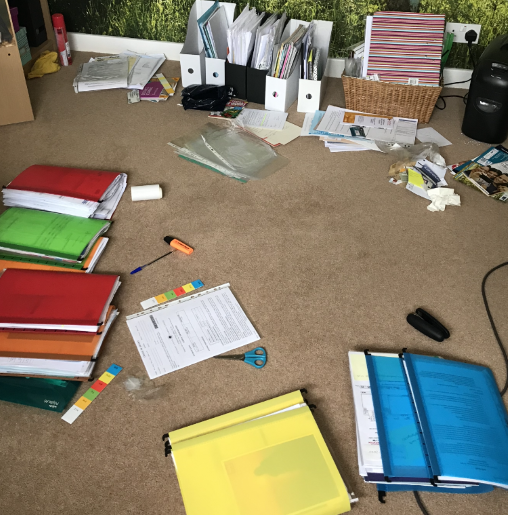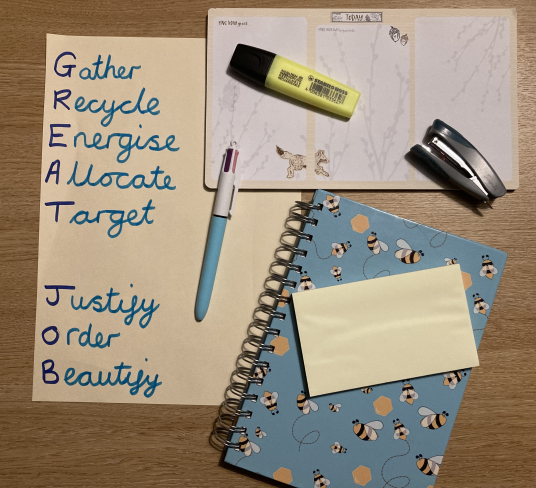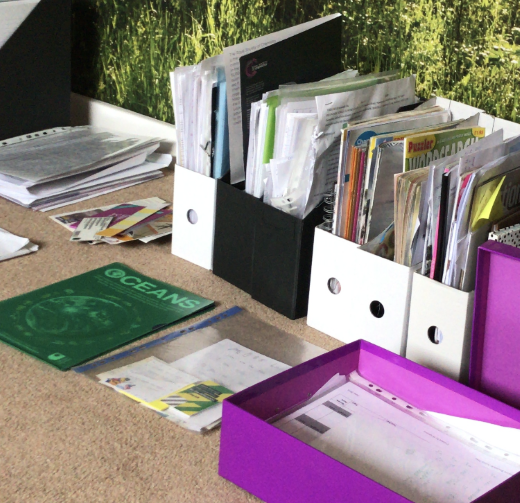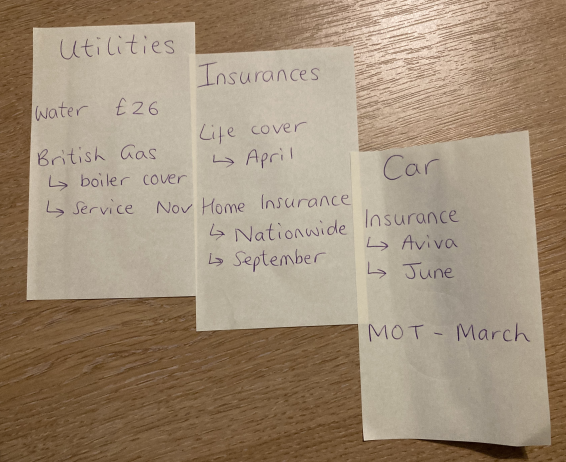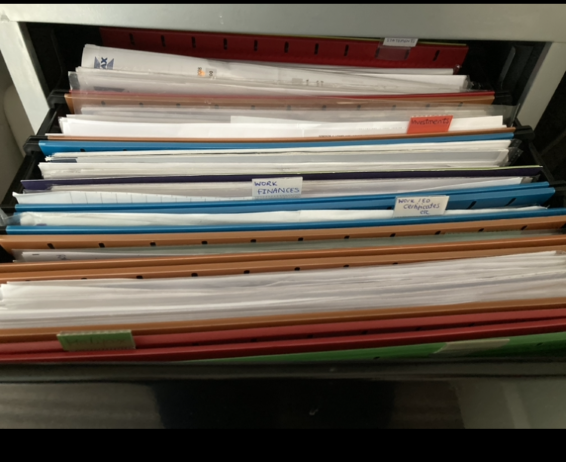As we continue to celebrate National Organising Week 2022, we share our third dedicated blog post about organising your household paperwork. This one is written by Adele, who is the owner of A Tidy Mind – Teesside and covers the North East of England and North Yorkshire.
Digitising paperwork and using online systems certainly has it’s place. However, most households also need systems, storage and space for a volume of paperwork. Our professional organisers deal with paperwork every day. Paperwork is an area with which some of our clients really struggle. It’s probably the category which is most procrastinated over or delayed. But not only is getting on top of your paper is essential for home and life organisation, it also can lead to better financial organisation, time management and improved relationships both inside and outside of your home.
Read on for the first steps to organising your household paperwork:
Organising Your Household Paperwork
Does seeing the post on your doormat fill you with dread? Is the idea of organising just a bit too daunting? Then read on to find out how you can do a ‘GREAT JOB’ to create a sense of calm.
All you need is:
- Paper / post its
- Pens / highlighters
- A calendar (paper / digital – whatever works for you)
- Temporary storage whilst the process is ongoing (a deep basket or a few boxes if you have a particularly large amount of paperwork)
- Files / folders
- Stapler / paperclips / plastic wallets (your choice)
- Sweets / chocolate / music (optional)
GATHER
Collect all of your post and documents into one place. That’s right, including those stacked behind the fruit bowl, stuffed into drawers and hiding in the under-stairs cupboard!
RECYCLE
Remove envelopes and place them into recycling. Yep, even the ‘nice’ envelopes that ‘might come in useful’. Trust me, they won’t!
As you take out the papers, staple the pages together and highlight the date if applicable.
Keep a look out for ‘junk’ that you can also discard.
Yes, bear in mind personal security but don’t get too overwhelmed by it. The chance of somebody going through your recycling really is slim.
ENERGISE
Don’t panic. Take a deep breath. Eat some sweets / play some motivating music.
ALLOCATE
Categorise the papers by subject. There are several ways to do this but if you are relatively agile, I recommend spreading piles across the floor with a post it for each.
If you know that you need to locate some important documentation for a specific / urgent task, now is the time to search.
List your categories as you create them and note any key information.
Top tip: Keep your categories fairly broad initially
TARGET
Select one category to begin with (and make it an easy one).
To reduce overwhelm, consider placing the other papers away in their piles. This means you can focus upon just one category and create space to spread out papers as needed.
Dedicate some time but don’t aim to do everything at once. If a category begins to really frustrate you, it is ok to leave it temporarily and move on.
Top tip: If possible/desired, enlist the help of a family member or good friend
JUSTIFY
As you look through the content of your chosen category, ask yourself these questions:
a) Is there anything here that I need to keep forever?
b) What do I need to keep for more than a year?
c) Which information is current and what is out of date?
d) How often do I search for an item from this category?
e) Can I access this information online?
f) Would a photograph of this document be sufficient?
Below are some example possible answers to the above. Using the example category or: car / vehicles
a) Driving license
b) Ownership documents, finance documents, service history
c) MOT certificate? Tax? Insurance certificate? AA membership?
d) Annually?
e) Most likely (doesn’t necessarily mean that I wish to)
f) Possibly
Remember: There are no specific ‘rules’ as such. Personally, I like to keep items for the current year and the one from the previous year to allow for comparison. Some people are more ruthless and that is great too. Ultimately, if completely digital works for you, go for it!
Don’t be disheartened if decluttering unwanted paperwork takes longer than you thought. It always does! You might like to read these tips in Metro Online on how to beat paper clutter (and deal with other key categories) contributed to by our founder Kate Ibbotson
ORDER
Select your file type and place the keep items in a sequence that makes sense to you.
I typically go for the ‘forever’ or long-term documents at the back and the more frequently switched out at the front.
You may decide that you wish to create a separate file completely for all of your ‘forever’ documents. The important thing is that the system works for you.
Highlight renewal dates and place reminders into your diary.
Top tip: If you are technologically savvy, set reminders on your phone / computer
BEAUTIFY
Make the completed file / folder attractive.
Use colours, decorative labels or whatever you fancy to aid the maintenance of the categories and prevent you needing to repeat the process.
Still struggling with organising your household paperwork?
Consider giving one of the A Tidy Mind team a call. We provide hands on help to those overwhelmed with their belongings, time and emotional clutter. Our organisers can come to your home and work with you to streamline and organise. They find what works for you and implement a system that you can maintain so you can feel empowered and more organised in the long term. Adele is based in Middlesbrough in the North East. We also cover: Yorkshire, Cheshire & Staffordshire, West Midlands & North Cotswolds, Cambridgeshire, Huntingdon & West Suffolk, Surrey/Hampshire/West Sussex and London. We work with organising clients remotely all over the world. A Tidy Mind also offer a specific ADHD Coaching and Productivity Coaching service.

